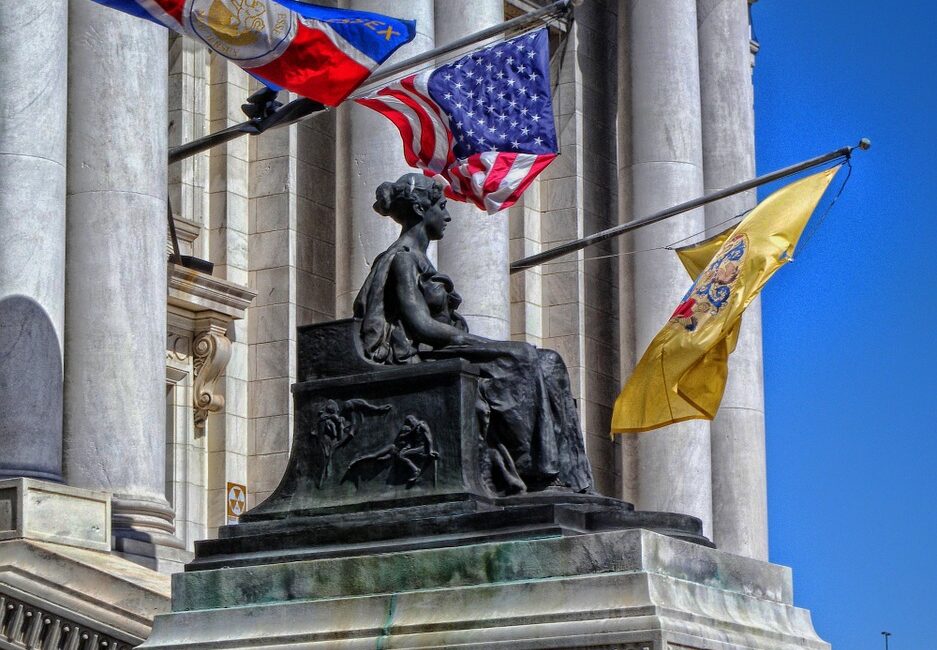One of the biggest legal gaming markets in the US has solidified its ban on sweepstakes sites.
New Jersey became the latest US state to take legislative action against sweepstakes casino sites Friday, when Governor Phil Murphy signed bill A5447 into law. The bill sat for weeks prior to Murphy’s approval after quickly clearing the state Legislature on 30 June.
Sweepstakes sites offer both non-monetary “gold coins” and a secondary currency known as “sweeps coins” that can be redeemed for real-money prizes. Their growth has been controversial from a regulatory and legislative perspective in recent years.
Opponents assert that this dual-currency wagering model exploits existing laws governing sweepstakes as a workaround to offer real-money online gambling in many jurisdictions that have not legalised the activity. Currently, real-money iGaming is legal in seven states, while sweepstakes are offered in dozens of jurisdictions, mostly in a legal grey area.
Proponents argue that sweepstakes are well-established contests conducted by a litany of non-gaming entities, like McDonald’s, Publishers Clearing House and others. They also assert that players are not required to purchase anything and can choose to play for free.
The NJ sweepstakes bill, per the governor’s office, has three main facets:
- Prohibiting the “sweepstakes model of wagering”;
- Establishing new penalties for offering the games;
- Granting enforcement authority to the state’s Division of Consumer Affairs and Division of Gaming Enforcement.
Sweeps opposition growing across the country
New Jersey represents the sixth state legislature to pass a bill affecting sweepstakes casino sites this year. Connecticut and Montana also enacted prohibitions into law, as has Nevada, although that state’s bill granted broader enforcement authority against unlicensed operators and did not explicitly ban sweeps like the others.
New York and Louisiana also passed sweepstakes bans this session. However, New York Governor Kathy Hochul has not signed her state’s bill (S5935A) as of writing, despite it passing both chambers in mid-June. Louisiana Governor Jeff Landry vetoed his state’s ban, asserting such legislation was unnecessary for state regulators.
Both states sent cease-and-desists to several operators, most notably Australian giant Virtual Gaming Worlds (VGW). Louisiana’s spate of 40 orders came from its Gaming Control Board, while New York’s 26 orders came from Attorney General Letitia James. As a result of the orders, VGW pulled its sweepstakes offering in multiple states, including New York and New Jersey.
“These actions send a clear message,” LGCB Chair Christopher Hebert said in a release at the time. “Louisiana will not tolerate illegal operators who put our citizens at risk and undermine the fairness and integrity of our gaming industry. We will continue to use every enforcement tool available to protect the public and uphold the law.”
California, which has long been a huge grey market for sweeps, is also considering its own ban, AB-831. The bill is currently working its way through the state legislature, backed by the heavily influential tribal casino lobby.
Sweepstakes, gaming trade groups spar after NJ
On 31 July, the American Gaming Association, a strong opponent of sweepstakes sites, published a study exploring users’ perceptions when playing on such sites.
According to the AGA study, 59% of respondents who play on sweeps sites say the activity is “definitely gambling”. A further 31% said it is “probably gambling”, with the remaining 10% saying it is not gambling. The findings came from a sample size of 750 players who play at least monthly.
Meanwhile, two trade groups representing sweeps operators have also become increasingly vocal. The Social Gaming Leadership Alliance (SGLA) includes VGW, and is led by Jeff Duncan, a former congressman from South Carolina.
“These bills may have passed the Legislature, but they’re the wrong solution to a misunderstood issue,” Duncan said in a statement after the New Jersey bill passed. “We urge Governor Murphy to veto A5447 and S4282 and convene a real conversation about consumer protection, innovation and economic opportunity.”
The other group is the Social and Promotional Games Association (SPGA), which predates the SGLA but is more opaque. Its statements, which are usually more colourful than its contemporary, are not attributed and its membership is not clearly listed on its website.
“Governor Murphy has an opportunity to do what the Legislature would not – listen to facts, not fear,” an unnamed SPGA spokesperson said prior to Murphy’s approval of the bill. “This bill doesn’t just mischaracterise an entire industry, it ignores data, undermines innovation and puts New Jersey’s reputation as a forward-thinking leader in tech and entertainment at risk.”
More Information & Source
Original Source:
Visit Original Website
Read Full News:
Click Here to Read More
Have questions or feedback?
Contact Us

